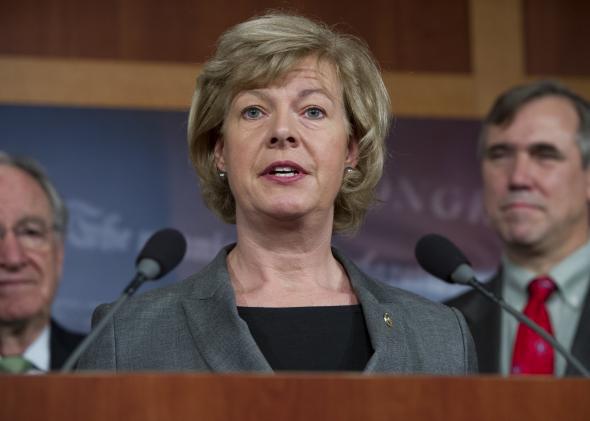Wisconsin is a state of political contradictions—we Wisconsinites have a proud progressive history, but we also produced one of the biggest opponents of welfare in the nation, a man who almost became the vice presidential nominee. We produced the first openly gay U.S. senator, but our state has held a ban on gay marriage for the past eight years.
Four same-sex Wisconsin couples are trying to change that. In conjunction with the American Civil Liberties Union, they are suing Gov. Scott Walker to overturn the state’s marriage ban. Wisconsin’s domestic partnership law does confer some benefits to gay couples, but ironically, gay-marriage opponents are simultaneously trying to overturn that domestic partnership law.
Wisconsin and Minnesota have drawn many comparisons recently for being a study in contrasts: Despite having almost identical cultural makeups, Minnesota veered to the left in 2010, while Wisconsin swung to the right. In summer of 2013, Minnesota became one of the 17 states that recognize same-sex marriage. Miraculously, the Twin Cities have not turned into a modern-day Sodom and Gomorrah since then.
A recent New York Times story detailed the political divide between the two states and profiled the owners of two gay bars who planned to relocate from Superior, Wisc., across the St. Louis River to Duluth, Minn., because of the marriage ban. “Here we are, living only five miles away,” one of the men told the Times, “but we’re treated so much different.”
Wisconsin not only lags behind Minnesota, but also behind Iowa, which has had marriage equality since 2009, and Illinois, where same-sex marriage will become legal on June 1. What makes Wisconsin’s gay marriage ban more heinous than other states’, however, is its draconian “marriage evasion law,” which could penalize same-sex couples who get married in another state with fines up to $10,000 or nine months in jail. Attorneys in the ACLU case say there haven’t been any prosecutions as far as they know, but the law remains on the books nonetheless.
Wisconsin residents agreed to the same-sex marriage ban in 2006, but the country has shifted considerably on this issue since then. In 2006, 35 percent of the country favored gay marriage, versus 55 percent that opposed it. By 2011, national opinion had flipped to support gay marriage, and in 2013, that margin was 50-43. A 2012 Pew poll found that voters in the Great Lakes region, which includes Wisconsin, favored legalizing gay marriage, 49-42. That margin was much slimmer in the Midwest region, which includes Minnesota and Iowa.
There is hope for gay Wisconsinites who want to marry if this lawsuit doesn’t pan out. Last month, one of the couples in the ACLU case got married … in Minnesota. In Wisconsin, this type of civil disobedience is inextricable from civil rights.
